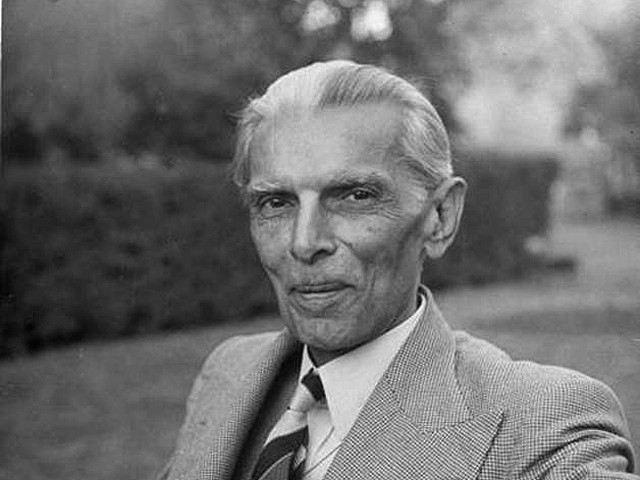

To the shrinking liberal strata of society the August 11 speech is a touchstone. Jinnah speaks with clarity of a state that is tolerant, inclusive and above all secular, but it was a vision that quickly was deliberately clouded by those who came after him and then metamorphosed over decades into the creature that the state has become today — riven by sectarian conflict, at the mercy of terrorists who roam at will and butcher our children with seeming impunity. A state where those who carried out the attack on the Army Public School in Peshawar on December 16 spent the night before staying in a mosque close by according to the initial police report on the attack. A state that is not failed — nor is likely to despite what the Cassandra’s may say — but is deeply flawed and performs far below where it should, given the plenitude of human and natural resources at its disposal.
It is clear that those who succeeded Jinnah in the corridors of power were distinctly unimpressed by what he said in his August 11 speech, and we are the worse off for it. They were powerful religious ideologues — to say nothing of vaultingly ambitious at a time when real power was close to hand — and they did what they could to suppress the speech in newspapers and it was virtually erased from the record.
Only of late, has there been some kind of attempt by progressive segments of society to demand that this important speech by the Quaid be given the importance in the national imagination that it merits.
Pakistan stumbled into the late 1960s, through the 1970s and on into the early 1980s via a steady process of Islamisation and the enactment of discriminatory laws targeted at minorities. The parts of that historic speech that did not chime well with our leaders and those who educated successive generations of our children — became lost. Deliberately lost. Jinnah himself was rebranded, shaped by a distorting mirror.
The secular, Westernised man that he was for the majority of his adult life was morphed into someone he was clearly not. Jinnah was portrayed by successive ruling regimes in a manner that suited their own perverse agenda for the country and his liberal leanings were completely ignored. If he were alive today, Jinnah would have been shocked at the way he has been portrayed in our history books.
History does not come with an ‘auto-correct’ button. The Pakistan of today is what its people, and particularly several generations of politicians — have made it. Such visionaries that we have border on the delusional on occasion, and a broad streak of mediocrity runs through most of the political cadre. When a state chooses second-best to lead it, then it is no surprise that the state itself becomes second best. Jinnah may not have been perfect, but any flaws he may have had were by far outweighed by the clarity and discipline of the vision that drove him. We shall not see his like again.
Published in The Express Tribune, December 25th, 2014.
Like Opinion & Editorial on Facebook, follow @ETOpEd on Twitter to receive all updates on all our daily pieces.
COMMENTS (18)
Comments are moderated and generally will be posted if they are on-topic and not abusive.
For more information, please see our Comments FAQ
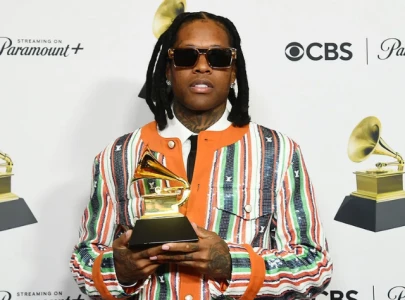







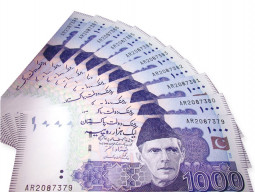
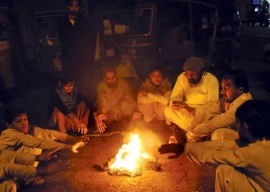
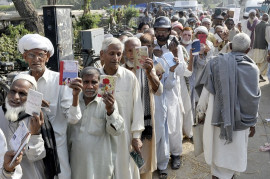

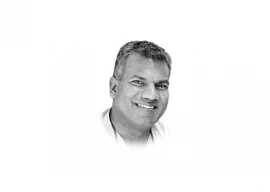





@BlackHat:
" Being “Hindu” inherently means being “secular”, while being “hindutva-wadi” means being the opposite of both, more like the Taliban."
The first part of your comment is true. Hinduism is all about personal spiritual enlightenment and is not an organized theology that claims absolutism, exclusivity and political and societal control.
The other part of your comment regarding Hindutva being like Taliban is an untrue hyperbole. To my knowledge Hindutva doesn't call for making India a theocratic Hindu state, Hindutva just emphasizes the ancient Indic roots,ethos, culture and history of India. There is nothing wrong in that vision. This vision is not unlike the notion of western nations that call their countries as based on Judeo-Christian principle and ethos.
Jinnah's Pakistan was born on the 14th August 1947 and died on 16th(?) december 1971. This Pakistan of Jinnah is characterized by two genocides, brutality, rapes of hundred of thousands women and mass exoduses.
The present day Pakistan is the creation of feudal lords, military and mullaism.
@Ali Tanoli: Absolutely not. You need to understand that religion, spirituality and morality are all different things. One does not need religion to be moral. Morality is a set of good values one follows, a code of conduct that does good to one and all. A supposedly deeply religious person may highly immoral. There are plenty of fraudulent religious leaders prancing around.
Secular means do worst than any religouse person but called secular and we can see west and india today with bjp.
@MA: In regular English 'secularism' means 'not having anything to do with religion'. It could be taken to mean 'ladeeniat' on occasion. In the Indian constitution that word has been interpreted to mean 'equality of all religions' (the very essence of Indian philosophy) or 'the government being equidistant from all religions', meaning no religious supremacy of one over another.
@Jai: Agree with you. Being "Hindu" inherently means being "secular", while being "hindutva-wadi" means being the opposite of both, more like the Taliban.
At first, Mountbatten said the British would leave India in 1948. In March of 1947 he told reporters the departure date would be 15th of August. Within under 6 months, lines drawn on the map, the Brits quit. There was no proper planning. No arrangements were made for any kind of emergency.
When Hong Kong was handed over to China, did they just abandon the island? When South Africa transitioned from apartheid, did they not negotiate and plan for the future? Even if partition was inevitable, couldn't it have been achieved in a more orderly and peaceful manner?
Something is not right about this story line including the roles of the British and the adversarial Indians.
How does quoting from speeches of people long gone help create a new future. Ideologies too have an expiry date. Acknowledging and internalizing a very basic aspect of character within us may hold the clue. We don't like someone different from us, "the other". In fact, we love to hate them! Just the thought of erasing difference is comforting. In South Asia, there is an abundant and endless supply of "the other". Even after a million partitions, there will still be "the other" for us to hate. This attitude is a mental illness that will surely hold us back for a long time to come. We don't want to cooperate, compromise for the common good, we'd rather find solutions by eliminating "the other".
@MA: Please don't generalize your views. I am a practicing Hindu and I would very much call myself a "secular". I think the ONLY place in the world where being called a "secular" is an insult. Everywhere else it is considered flattering.
@Pankaj: The killers of Mahatma Ganhi rule the roost in India and you talk about Jinnah. At least unlike Nehru dynasty, with their addiction to corruption, Jinnah or his sister had no financial scams involving them
The creation of Pakistan has much to do with downfall of British Empire (internationally), and this actually was an opportunity for both Congress and ML. Unfortunately, the political gap between both the parties became intense therefore the creation of Pakistan has less to do with Muslim state than independent political state. I support Jinnah, and his cause. I wish his ideology of an independent state (and society within) conceptualises soon not only in Pakistan but also at our eastern border. Happy Birthday Jinnah. Merry Christmas.
If this was the case (Pakistan being a Secular State) why we separated from India..? Author should reconsider his/her views...dont distort the only common view point other thn cricket in Pakistan as being Islamic State..
Can an individual who declares he cannot live with alcohol drinkers and partitions a country to form another country for teetotaller’s be believed when he says “You are free; you are free to go to your public houses, you are free to go to your lounge bars or to any other place or drinking in this state of Teetotallerstan. You may belong to any Oenophile Club or be a cerevisaphile or lover of single malt, that has nothing to do with the business of the state? I would not believe the individual.
The ideology of Jinnah has destroyed the Pakistan. Everyone wants to be Jinnah of his own sect.
this is exactly what jinnah wanted , he was a murderer of direct action day. now his people are enjoying direct action every day.
No religious person anywhere on earth, no matter what the religion, likes to be called secular. A vast majority of Pakistanis equate the word secularism with 'ladeeniat' and hence take offense on its mention. So I don't see what ET expects to achieve with these types of editorials. We have a constitution and democracy, why not emphasize on improving those towards Jinnah's vision.